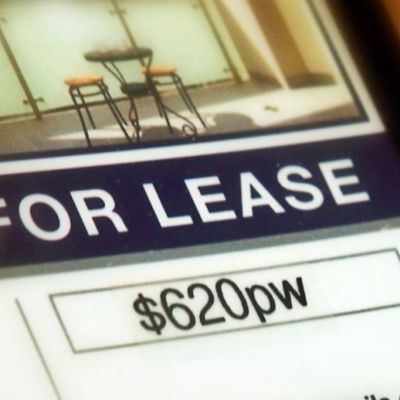Almost all tenancy complaints in Victoria and NSW come from landlords, not renters

In the last financial year, more than eight in every 10 official tenancy complaints in Victoria and NSW were not from tenants, but from landlords, an analysis of Australia’s tribunal data shows.
In NSW, 83 per cent of almost 70,000 tenancy cases lodged to the NSW Civil & Administrative Tribunal in the 12 months to June 2016 were lodged by landlords, an analysis of tribunal data by comparison website Finder found.
And in the Victorian Civil and Administrative Tribunal, 93 per cent of cases were against tenants.
The main topic of dispute was bonds – making up about half of all complaints, Finder spokeswoman Bessie Hassan said.
Largely, this is an issue because “landlords feel it’s their only way to get compensation,” Ms Hassan said.
“These people feel like there is no other alternative but to go to the tribunal.”
But tenant advocacy groups claim it’s simply not the case that landlords have more to complain about than renters.
It’s a situation that clearly shows a “structural imbalance at play” where tenants do not see the tribunal as a suitable dispute-resolution service, Tenants Union of NSW senior policy officer Ned Cutcher said.
For landlords, the most common reason for going to the tenancy tribunal was to seek an eviction, which was allowed to be enforced by a sheriff who can use “such force as is reasonably necessary”.
By comparison, the few tenants who do take their landlords to tribunal are usually seeking maintenance and repair orders – something there was “no real way” to enforce, he said. This left tenants in a situation where if a landlord did not comply with the order, they would simply end up back at tribunal.
“It’s easier for a landlord to ignore the repercussions than a tenant … [tenants] feel structurally powerless and it emboldens landlords further,” he said.
He also warned some property managers asked tenants on application forms whether they had been to tribunal, which had many concerned of the “cost down the track” of taking a landlord to task.
Tenants Union of Victoria policy officer Yaelle Caspi was aware of the disproportionate number of cases brought by landlords against tenants.
“Tenants fear retaliation [if they take the landlord to tribunal]. They are afraid of a rent increase, an eviction notice or a bad reference,” Ms Caspi said.
She said the tribunal system was “not accessible” for tenants and simply didn’t work.
And National Shelter executive officer Adrian Pisarski said many tenants “seem scared to report issues”.
“It may also be that lessors and agents are more equipped to make claims, able to afford legal representation or that agents have pro forma processes that make it easier.”
In some regions, he warned there was limited tenancy advice and there remains “a question about access to representation”.
Despite the concerns from tenants, most property managers and property investor groups didn’t want to go to have to go to tribunal.
Property Investment Professionals of Australia chair Ben Kingsley said it was “very unusual” for landlords to head to tribunal and far from ideal.
“It’s better to have a conversation with the tenant,” Mr Kingsley said.
“If it’s a serious breach of the arrangement, such as malicious damage or disruptive behaviour, it should be straight to tribunal.”
And some landlords are simply going to tribunal due to a lack of understanding about “fair wear and tear” and the simple fact that “things happen”, said Fia Foglia, senior property manager for Inglis Property Macarthur.
She warned this was particularly the case when tenants move into brand new houses, or homes that were lived in by the owners who “have a personal attachment” to the property.
The best solution was for tenants and landlords to both be educated on their obligations, plenty of ingoing photographs and a “reasonable attitude”.
One of the main reasons landlords and tenants end up at tribunal is a “lack of communication and failure for both parties to understand their legal obligations,” said Rachael Byrne, senior property manager for Jean Brown Properties.
“The main dispute that we see is at the end of the tenancy with a landlord needing to re-coup costs for repairs cleaning,” Ms Byrne said.
“I believe if landlords, agents and tenants are in constant communication with each other and understanding of their legal obligations then the majority of disputes should be able to be settled without the need for tribunal.”
Top 6 reasons cases are brought to Tribunal
- Bond distribution
- Compensation in excess of bond
- Possession of the property or termination of lease
- Rent in arrears
- Tenants breaking their leases
- Repairs
Source: Finder.com.au and tribunal organisations across Victoria, NSW, Queensland, Western Australia, South Australia and ACT. Does not include Tasmania
We recommend
We thought you might like
States
Capital Cities
Capital Cities - Rentals
Popular Areas
Allhomes
More










